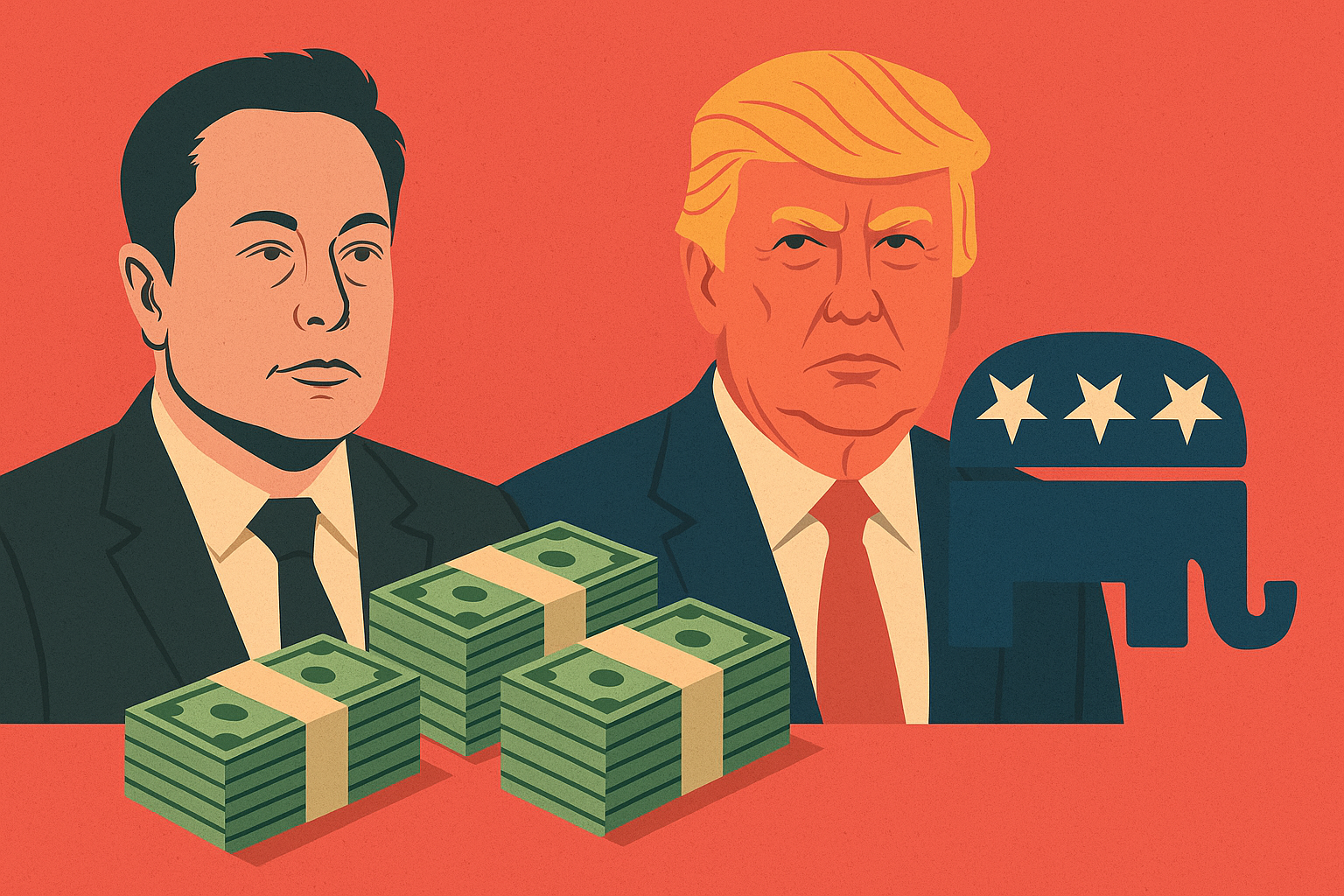Billionaire entrepreneur Elon Musk has continued to pour millions into Republican political campaigns, despite a very public falling-out with U.S. President Donald Trump and growing political tensions between the two.
According to Federal Election Commission filings published Thursday, Musk was the largest single donor to Republican congressional campaign groups in the first half of the year. On June 27, Musk donated $5 million each to two major Super Political Action Committees (Super PACs) supporting Republican candidates in the House and Senate, respectively—just days before he hinted at forming a rival political party.
The donations come amid an ongoing backlash against Musk’s companies—Tesla, SpaceX, and Starlink—due to his previous involvement with the Trump administration, especially through his controversial leadership of the now-defunct Department of Government Efficiency (Doge).
America PAC Nearly Depleted
Musk’s personal political arm, America PAC, which had supported Trump’s 2024 campaign and several conservative candidates in key swing states like Pennsylvania and Wisconsin, has seen its funds dwindle. As of the end of July, the PAC reported less than $200,000 in cash, after Musk had injected $45 million into it over recent months. A large portion of those funds went toward supporting Brad Schimel, a conservative judicial candidate in Wisconsin, who ultimately lost by a margin of 10 percentage points.
The defeat, along with intensifying scrutiny of his business interests, prompted Musk in May to signal that he would scale back political donations. However, his subsequent multimillion-dollar contributions suggest a shift in strategy—one focused on backing congressional Republicans rather than the Trump-led national ticket.
Fallout with Trump
Tensions between Musk and Trump escalated dramatically earlier this summer. Musk openly criticized the administration’s tax and spending proposals, labeling them “pork-filled.” He also reignited speculation regarding Trump’s alleged ties to Jeffrey Epstein, the late financier and convicted sex offender, comments that led to sharp rebukes from the White House.
In retaliation, President Trump threatened to revoke federal contracts awarded to Musk’s companies and even floated the idea of deporting the South African-born billionaire—despite his longstanding role in U.S. innovation and infrastructure.
In a defiant response, Musk announced the creation of the “America Party” on July 5, pledging to support independent candidates running against Republicans. However, there has been no official filing or organizational movement to establish such a party at either the state or federal level, raising questions about the seriousness of the initiative.
Recent Signs of De-escalation
Despite the sharp rhetoric, tensions appear to be easing. In recent public remarks, Trump softened his tone, stating that he hoped Musk’s companies would thrive, indicating a potential thaw in their relationship as the political landscape continues to evolve ahead of the 2026 midterm elections.
Musk’s evolving political strategy—marked by massive donations, political experiments, and high-profile disputes—reflects both his growing influence and unpredictability as a force in American politics.



